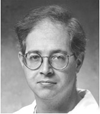My flying friends tell me that administering anesthesia is like flying a plane. I don’t know myself, since the only flying I’ve ever done is with radio controlled gas powered planes, (with pretty pathetic results.) I think my friends may be a bit fanciful in their comparisons, since I see them running out on the weekend to fly their Cessnas, (surgeons fly Beech or Cirrus) not coming to the OR to do an extra case…
When I trained, we spent quite a bit of time reviewing National Transportation Safety Board crash investigations, and my pilot/professor/gurus always seemed to find the take home point in those flying mishaps. I still have my tutor George Bush’s (the Wisconsin Professor, and a personal hero of mine) voice in my ear admonishing me to “stay ahead of the plane,” in the OR, by which he meant, don’t just react to events, look ahead and set things up as the case proceeds.
Along these lines, I recommend an interesting book for anesthesiologists; “Deep Survival “ by Laurence Gonzales. The first chapter deals with carrier deck flight ops, and the whole is a fascinating neuro-biological study with obvious applicability to anesthesia (both the giving and receiving).
My friends at the University of Chicago who study critical events, like to compare anesthesia, the nuclear power industry, and flight ops. This topic is not something I feel personally qualified to opine about, but my friend and co-author Mike O’Connor is, and I hope he will discuss this issue in future posts.
So, last year, a retired commercial aviation pilot asked me during the preo-op interview how much experience I had. I figured I work 45 hours a week in the OR actually giving anesthetics, 48 weeks a year. I’ve been doing so for twenty years in Las Vegas. Allowing myself a conservative 5000 hours for my years in training and as an assistant professor, that comes to 48,200 hours. Giving flying a generous 2:1 discount for the sake of argument, that’s still over 24000 hours of equivalent “flight time”; more than most top-tier career commercial pilots.
That puts me, and my like-aged colleagues in a pretty remarkable experiential position, and it shows clinically. At the risk of offending the anesthesia gods, my anesthesia partners, all in their fifties, don’t get in much trouble in the OR, and are pretty good (and comfortable) at getting out of the trouble that our surgeon-clients occasionally wander us (our patients really) into. Besides the previous Posts concerning controlled studies vs. experience, there are other implications to this flying/anesthetics metaphor, which I intend to explore in future posts. I note, for instance, that we all carry a wary, but essentially un-emotional attitude into the OR regarding the technical aspects of what we do. While I might be sad about the misfortune of a young trauma or cancer patient, It’s been a long time since I was worried or anxious about a clinical situation. In fact, if I were the least bit anxious about what I was expecting to do, I would consider it an emotional manifestation of my judgment that for whatever reason I wasn’t up to the task.
I love reading what Kofke and O'Connor are writing. I am experiential; they are experiential...and intellectual. If things go well for me, I expect to spend another 20,000 hours in the OR before I'm done. I hope I can continue to improve to the end...
 Mitch Keamy is an anesthesiologist in Las Vegas Nevada
Mitch Keamy is an anesthesiologist in Las Vegas Nevada
 Andy Kofke is a Professor of Neuro-anesthesiology and Critical Care at the University of Pennslvania
Andy Kofke is a Professor of Neuro-anesthesiology and Critical Care at the University of Pennslvania
 Mike O'Connor is Professor of Anesthesiology and Critical Care at the University of Chicago
Mike O'Connor is Professor of Anesthesiology and Critical Care at the University of Chicago
 Rob Dean is a cardiac anesthesiologist in Grand Rapids Michigan, with extensive experience in O.R. administration.
Rob Dean is a cardiac anesthesiologist in Grand Rapids Michigan, with extensive experience in O.R. administration.
I've had a similar conversation with a few neighbors who were very quick to point out that "should something go wrong on my plane, it's 300 lives, including my own that come in peril!" To that I responded he had protection from liability. He's never faced a plaintiff's attorney! Luckily either have I. Or perhaps it's the same attention to detail that have kept both of us out of trouble, and kept our "patients" satisfied.
Posted by: Michael Loomis | February 27, 2024 at 04:35 PM
Great article. I'm an airline pilot with in excess of 20,000 hours of flying time and I have had exactly 2 emergencies during the past 30 years; neither was a big deal. One thing bothers me about anesthesia: the patient often has little or no choice as to their anesthesia provider. In the past, I always had an anesthesiologist do the few surgeries that I needed; years later this became a nurse anesthetist supervised by an MD, and now I'm told that the nurse anesthetists are demanding parity with anessthesiologists along with the right to work without supervision. This is unsafe. Sure, we do flight training during commercial operations, but a qualified pilot is always at the full dual controls and ready to take over in seconds. I don't see this when one anesthesiologist supervises multiple CRNA; and now I see that even this minimal supervision may disappear.
Posted by: Jimmy J | November 13, 2023 at 05:36 AM